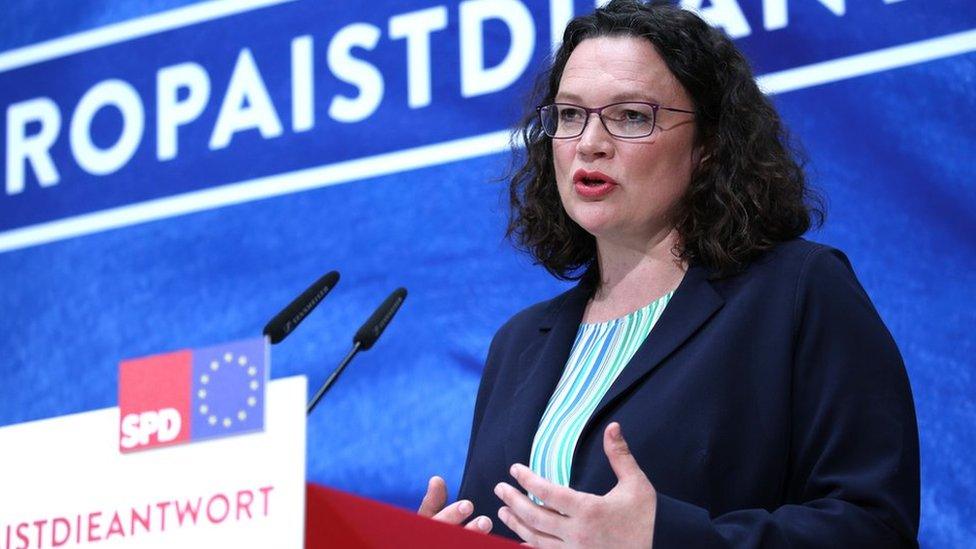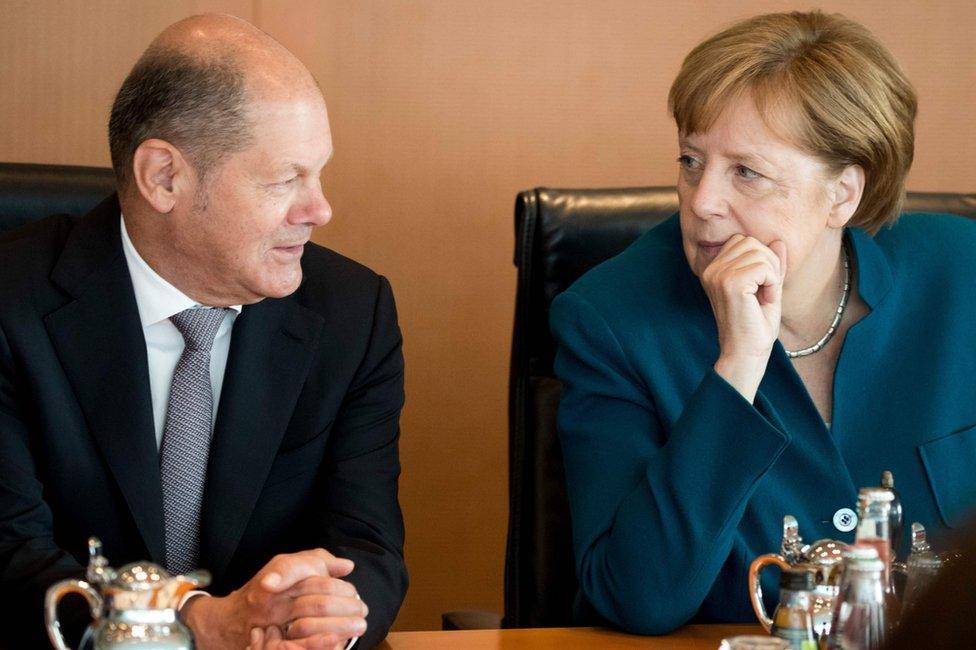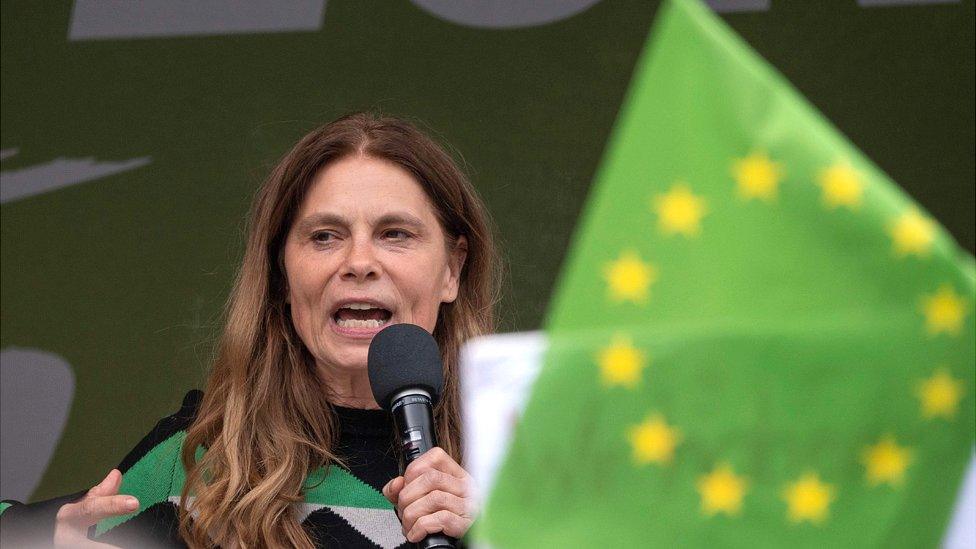Andrea Nahles: SPD leader and Merkel coalition partner to resign
- Published

Andrea Nahles's SPD suffered heavy losses in last week's European elections
Andrea Nahles has announced she will resign as leader of Germany's Social Democratic Party (SPD).
It comes after the centre-left party came third, behind the Greens and Angela Merkel's Christian Democrats (CDU), in the European elections.
Ms Nahles had been heavily criticised by the SPD's left for remaining in coalition with Ms Merkel's party.
CDU leader Annegret Kramp-Karrenbauer warned the SPD not to endanger the coalition government.
"I assume the SPD will undergo a succession in short order without hindrance to the functioning of the grand coalition," she said.
"In the CDU we believe that this is not the time to play politics. We want to serve our country with good governing policies."
Ms Nahles said she would quit as party leader on Monday, and as head of its parliamentary group on Tuesday.
In a statement released by the SPD on Sunday she said: "The discussions within the parliamentary faction and feedback from within the party have shown me that I no longer have the necessary support to carry out my duties."
She had earlier announced that the leadership contest would take place on Tuesday.
Her resignation comes as a surprise. She became party leader in April last year, and was expected to run for the position again.
In last week's European Union parliamentary elections, her party hit an all-time low, getting less than 16% of the vote.
And on Saturday, an opinion poll showed that support for the SPD was the lowest it had ever been, at just 12%. At the same time, the Greens were shown to have overtaken the conservative CDU as Germany's most popular party for the first time.
What does this mean for the ruling coalition?
Ms Nahles' resignation could threaten the current government.
If the SPD were to quit the coalition, the fall of the government would be likely to trigger fresh elections.

Vice Chancellor Olaf Scholz, of the SPD, speaks with Chancellor Angela Merkel
But the left wing of the SPD has been urging the party to leave the coalition since it entered into government with Ms Merkel last year. They say that compromising with conservatives has been costing them support.
The SPD's Olaf Scholz, who is also Germany's vice-chancellor, told the Tagesspiegel newspaper that he has ruled out entering another such coalition.
"Three grand coalitions in a row would not do democracy in Germany any good," he said in the interview published on Sunday, before Ms Nahles announced her resignation.
- Published27 May 2019
- Published19 May 2019
